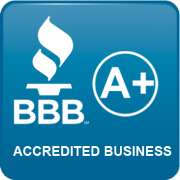Property Tax, Pension, and School Funding Debate – Cook County
Property Tax, Pension, and School Funding Debate – Cook County
The Cook County property values in 2015 recorded an upward swing. This raises tax liability for property owners proportionately. According to Cook County Clerk David Orr, property values in Cook County increased by 1.8 percent in 2014; the first increase since the 2008 recession. In the last five years, Cook County has raised the amount of property tax. Critics have argued that the rate at which property tax increases is faster than the land appreciation rate eating away disposable income for most households.
Cook County Property Tax
Property Bill 2015 has created a heated debate over the last two months. The bill will see the average homeowner pay an additional $89.44 in property tax, representing a 2.28 percent increase. The average total property tax for the average homeowner is estimated to reach $3,326.55. The increase will vary across Cook County. In the northern half, the percentage increase is less than 2.4 percent. However, the tax bill will remain higher given that property values are higher in this region than any other part in Cook County. The increase is estimated to rise from $155.49 to $6,544.09 in the region. Southern suburbs will see an average decline of $51.33 in property tax compared to last year. The region was reassessed recently, and Cook County proproses a levy of $4,850.23 representing a reduction of 1 percent.
What this implies is that your property tax, calculated as a percentage of your home’s value, is declining by 6.81% and 13.05% in Chicago and the southern suburbs, respectively. However, this is only a theoretical calculation. In practice, the actual property tax levied will rise regardless of the family income even if it remained constant.
School Funding
Land value rose in the city by 4 percent in 2015. Expiration of the Chicagos’ huge Near South Tax Increment Financing District is responsible for the hike. It collected a total of $65 million in property tax that was used for Tax Increment Financing (TIF) purposes in 2014. In the future, the $65 million will be channeled to the regular tax pot. This means that The Cook County Public Schools will receive funds from the source. Public schools will be allowed to levy a property tax by the state’s property law.
Cook County public schools, and the city itself, face a huge demand for revenue. Spiraling pension debt will take a huge chunk of the new money. Public schools will be left with little to gather for development projects. With the loss of Tax Increment Financing (TIF), Cook County will have to look for alternative sources of fundraising for public schools that will go to development projects such as building schools, transit stations, parks, etc. In recent years, Tax Increment Financing (TIF) was responsible for funding public schools.
For now, if your home value rises, be prepared for a huge tax liability. The Alternative Homestead Exemption commonly referred to as the 7 percent Assessment Cap, has been nullified in the city, and the northern suburb with the process in the advanced stages of phasing out in the southern suburb. In 2014, the property tax levied in Cook County was $12.37 billion, up 2.16 percent from 2013. Under the new law, the increment should be less than 1 percent in 2015 due to low inflation exclusive of any Tax Increment Financing (TIF) expirations and income generated from new property developments.
For more information visit our website and sign up for our free mailing list to receive the latest news updates on Cook County property tax, pension and school funding and much more. You can also like our Facebook page or follow us on twitter for latest updates


Leave a Reply
Want to join the discussion?Feel free to contribute!